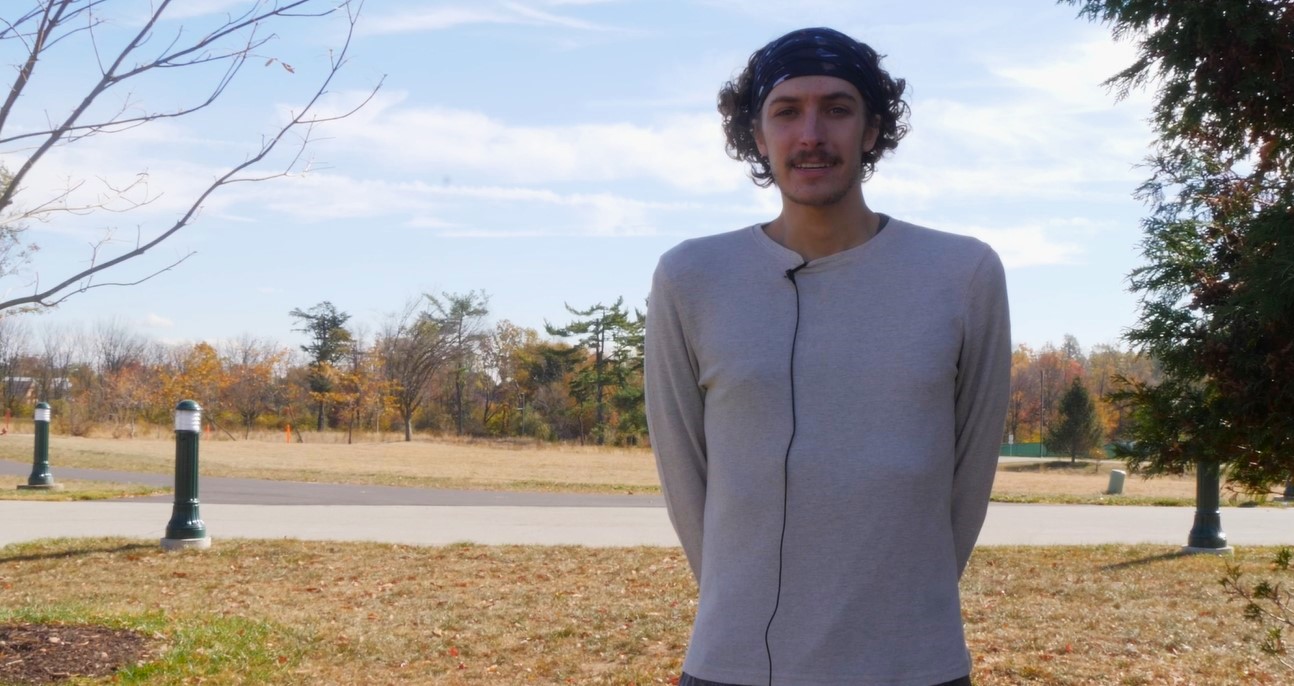We are continuing our series of videos introducing you to the Temple Ambler Field Station Research Interns as they share insights into their research and their experiences on campus.
Alexander Friedrich, a senior Environmental Science major in the College of Science and Technology, said his interest in the world around him came at a very young age.
“Growing up as a kid, I was always surrounded by nature, whether it was going out and hiking and camping or just spending time in nature centers and learning about nature, I’ve always been interested in the environment,” he said. “I wanted to choose a major where I could learn more and, hopefully, teach more about it in the future.”
Friedrich was first introduced to the Field Station by taking Disturbance Ecology, taught by Dr. Marina Bonfim, Director of the Temple Ambler Field Station.
“That was a course that had a large fieldwork component. We got to go out in the Temple Forest Observatory and we got to engage in some of the research methods we’re now using in the Field Station,” he said. “Getting that experience was very interesting to me and it felt like something I wanted to do more of, so I decided to reach out and apply to become a research intern.”
During his time with the Field Station, Friedrich was involved in seed collection research examining what types of seeds fall at different times of the year and in different parts of the forest.
“We undertook a lot of seed collection and a lot of surveying of woody plants, so we have an up-to-date account of all of the different plants in the forest,” he said. “My independent project focuses on bird diversity and bird detection in disturbed forests. I wanted to look at a disturbed and a non-disturbed forest and see if the recovery of the disturbed forest had any impact on the bird diversity throughout time. I also wanted to test the different methods of bird detection, whether it was visual, auditory — listening to the birds or recording them on a microphone — and seeing if either of those were more or less affected in disturbed and non-disturbed areas.”
Hands-on research, Friedrich said, “really help you translate what you learn in a classroom to your real life.”
“It’s very easy to read a textbook and watch a lecture and be overwhelmed with information. When you get to go out into the field and actually experience these things — actually touch the plants and see the animals — and record the data, you get a great appreciation for all of the research that happens.”
Students gain advanced training by engaging in hands-on research internships that bring alive the excitement of science through an inquiry-based experience. Student interns work alongside researchers in the field to support ongoing projects and can develop investigations of their own.
Students interested in becoming a Field Station Research Intern, should reach out to the Temple Ambler Field Station at [click-for-email] with their name, why they are interested in working with the Field Station, current transcripts, and current resume.
Learn more about the Temple Ambler Field Station at https://ambler.temple.edu/fieldstation.

